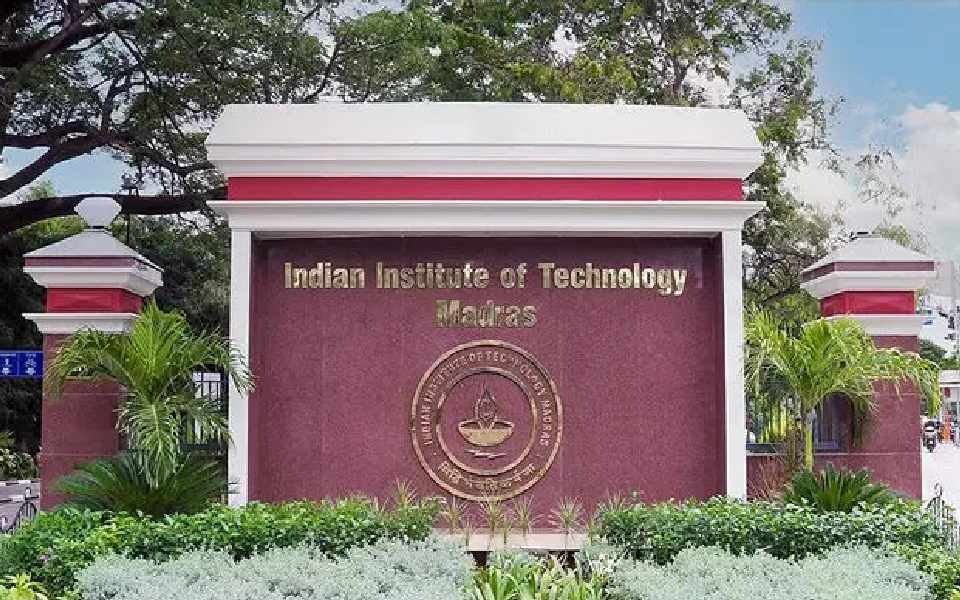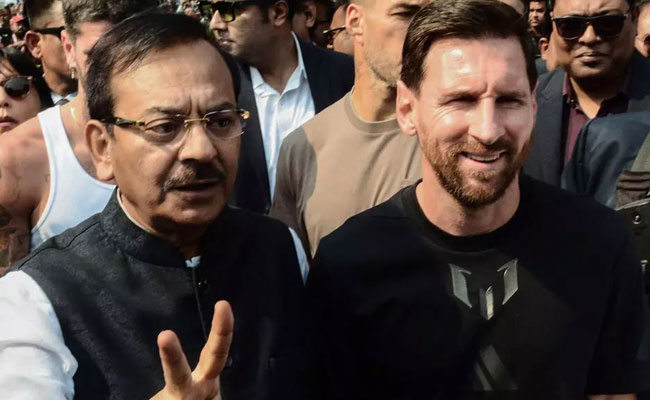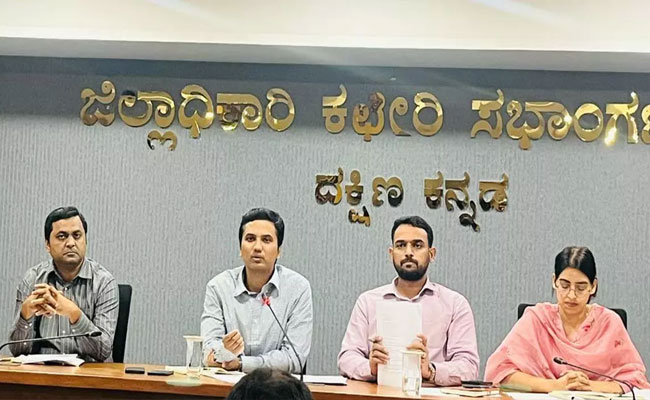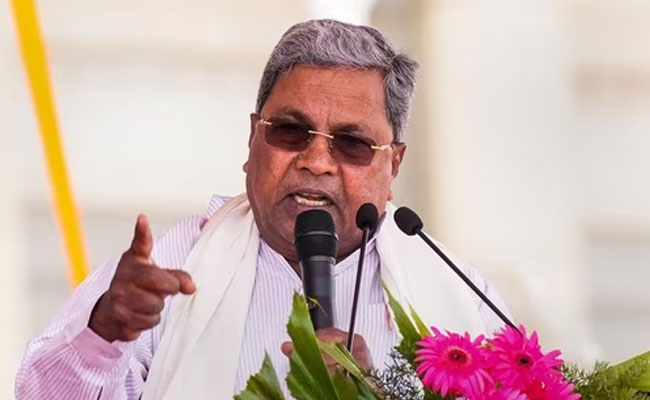New Delhi, Aug 12: The Indian Institute of Technology (IIT) Madras remained on the top spot in the National Institute Ranking Framework, 2024 for the sixth consecutive year, while the Indian Institute of Science (IISc), Bengaluru was ranked as the best university for the ninth year in a row, according to the Ministry of Education.
Delhi University improved its rank from 11 to 6 while Hindu College stalled Miranda College's seven-year run as the best college in the ninth edition of the NIRF rankings, which was announced by Union Minister of Education Dharmendra Pradhan on Monday.
Behind IIT Madras, IISc Bengaluru took the second spot in the "overall" category, followed by IIT Bombay while IIT Delhi, which was at the third place in the category last year, slipped to the fourth position.
Eight IITs figured in the top ten besides All India Institute of Medical Sciences (AIIMS), New Delhi and the Jawaharlal Nehru University (JNU).
Among universities, IISc Bengaluru is followed by JNU and Jamia Millia Islamia. All three retained their positions.
Nine IITs are in the top ten list for engineering colleges with IIT Madras being at the top for the ninth consecutive year in the category. IIT Delhi and IIT Bombay also retained their second and third spot respectively in the category. National Institute of Technology (NIT), Tiruchirapalli is the only non-IIT in the top ten list.
Knowing the quality, performance and strengths of an academic institution is a right of students and parents, the education minister said after the rankings were announced.
"All the 58,000 HEIs (higher education institutions) in the country must come under the ranking and rating framework. Our ranking mechanism must also include skilling as a parameter. Intangible aspects are powerful stimulus to learning and development. We should devise mechanisms to bring intangible aspects of education in the rankings framework," Pradhan said.
"As we move forward, we recognise the need for more transparency and a progressive approach in evaluating institutions. The feedback from various institutes highlights that not all should be judged on the same factors," he added.
Among management colleges, IIM Ahmedabad retained its top spot for the fifth year in a row, followed by IIM Bangalore and IIM Kozhikode. Two IITs -- Bombay and Delhi -- also figured in the top ten list for management courses.
In pharmacy, Jamia Hamdard rose to the top spot from its second position last year while the National Institute of Pharmaceutical Education and Research, Hyderabad slipped to the second rank. BITS Pilani retained its third position in the category.
DU's Hindu College and Miranda House switched positions in the colleges category with the former bagging the top spot. St Stephen's College is in the third position among colleges, up from its 14th rank last year.
Similarly for law, the National Law School of India University, Bengaluru followed by the National Law University, Delhi and NALSAR University of Law, Hyderabad retained their first, second and third spots, respectively.
For architecture and planning courses, IIT Roorkee was announced as the best, followed by IIT Kharagpur and NIT Calicut.
Among medical colleges, All India Institute of Medical Sciences (AIIMS), New Delhi bagged the top position followed by PGIME, Chandigarh and CMC Vellore at second and third spot.
Among the dental colleges, Saveetha Institute of Medical And Technical Sciences, Chennai and Manipal College of Dental Sciences retained the top two positions while the third rank was bagged by Maulana Azad Institute of Dental Sciences, New Delhi.
For research, IISc Bengaluru was declared the best, followed by IIT Madras and IIT Delhi at second and third spot.
For education in Agriculture and Allied Sectors, Indian Agricultural Research Institute, New Delhi is at the first spot while ICAR-National
Dairy Research Institute, Haryana bagged the second rank, followed by Punjab Agricultural University, Ludhiana.
For 2024, the ranking exercise maintains the practice of providing a comprehensive "overall" rank, alongside distinct rankings in categories -- Universities, Research Institutions, Degree Colleges and Innovation as well as discipline-specific rankings in Engineering, Management, Pharmacy, Law, Medical, Dental, Architecture and Planning, and Agriculture and Allied Sectors.
Additionally, open universities, state public universities and skill universities have been included as new verticals in this year's rankings.
Among state public universities, Anna University in Chennai bagged the top spot, followed by Kolkata's Jadavpur University and Savitribai Phule University, Pune.
IGNOU topped the list for open universities, followed by Netaji Subhas Open University, Kolkata and Babasaheb Ambedkar Open University, Ahmedabad.
Among skill universities, Symbiosis Skills and Professional University, Pune was awarded the first position followed by Shri Vishwakarma Skill University, Haryana and Bhartiya Skill Development University, Rajasthan at second and third spot respectively.
The participation of HEIs in the NIRF rankings has grown from 3,565 in 2016 to 10,845 in 2024, with the number of categories and subject domains expanding from four in 2016 to sixteen in 2024.
The NIRF provides for ranking of institutions in five broad generic groups of parameters - Teaching, Learning and Resources (TLR), Research and Professional Practice (RP); Graduation Outcome (GO); Outreach and Inclusivity (O&I) and Perception (PR).
Let the Truth be known. If you read VB and like VB, please be a VB Supporter and Help us deliver the Truth to one and all.
New Delhi (PTI): The BJP on Tuesday alleged that West Bengal Chief Minister Mamata Banerjee's accepting Aroop Biswas' resignation as the state sports minister is nothing but a "rear-guard action" to douse public anger over the mismanagement of football icon Lionel Messi's event last week.
BJP co-in-charge for West Bengal Amit Malviya alleged that this is also an "open confession" that the Messi event fiasco was not accidental but a government-manufactured disaster, borne out of the poor governance of Banerjee, her ministers and the state bureaucracy.
Banerjee on Tuesday accepted Biswas' resignation as the sports minister in the wake of the controversy over the mismanagement of football icon Messi's event last week, a senior leader of the ruling TMC said.
Biswas, who had written to the chief minister seeking to be relieved of his responsibilities as sports minister, will continue as a cabinet minister, retaining charge of the power department.
ALSO READ: Slain Australia beach shooting suspect native of Hyderabad: T'gana police
Reacting to the development, Malviya said in a post on X, "TMC Sports Minister Aroop Biswas resigns after the Messi fiasco and Mamata Banerjee accepts it in record time."
"Do not mistake this for accountability; this is nothing but a rear-guard action to douse public anger. anger! This is not 'Raj Dharma'," he added.
The BJP leader alleged that the incident was the outcome of "loot" of common people which is "so synonymous" with the TMC.
The incident was also the outcome of the "shameless VIP culture that TMC thrives on and deep-rooted cronyism promoted by Banerjee," he charged.
Malviya further alleged that Biswas' resignation exposes a "collective failure of Mamata Banerjee, her partisan bureaucracy, and her crony cabinet".
"This is a symbolic sacrifice, a political hoax, soon to be buried under layers of bureaucracy, with no justice, no accountability, and no remorse," the BJP leader said, adding, "No resignation will bring back the time lost, the money wasted, or the stolen chance for football lovers to witness Messi in Kolkata."





